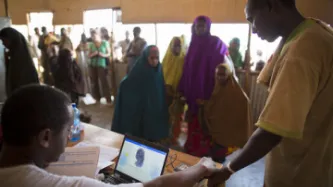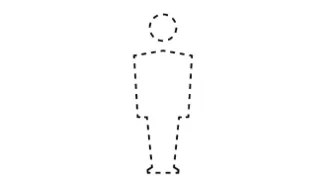Search
Content type: Advocacy
Privacy International (PI) welcomes the call of the Special Rapporteur on the human rights of migrants to assess the human rights impact of current and newly established border management measures with the aim of identifying effective ways to prevent human rights violations at international borders, both on land and at sea.
The issues highlighted in the call for submissions are ones that PI has been investigating, reporting and monitoring as part of our campaigns demanding a human rights…
Content type: Long Read
In a roundtable available on YouTube, co-hosted with Garden Court Chambers, Privacy International brought together immigration law practitioners to discuss how they’ve used privacy and data protection law to seek information or redress for their clients.Index:1. UK Border 20252. Super-complaint and judicial review challenge to data sharing3. Mobile phone seizure and extraction4. Freedom of Information Act requestsThe dystopian future: UK Border 2025To set the scene on how the future may look…
Content type: Explainer
At first glance, infrared temperature checks would appear to provide much-needed reassurance for people concerned about their own health, as well as that of loved ones and colleagues, as the lockdown is lifted. More people are beginning to travel, and are re-entering offices, airports, and other contained public and private spaces. Thermal imaging cameras are presented as an effective way to detect if someone has one of the symptoms of the coronavirus - a temperature.
However, there is little…
Content type: Long Read
Over the last two decades we have seen an array of digital technologies being deployed in the context of border controls and immigration enforcement, with surveillance practices and data-driven immigration policies routinely leading to discriminatory treatment of people and undermining peoples’ dignity.And yet this is happening with little public scrutiny, often in a regulatory or legal void and without understanding and consideration to the impact on migrant communities at the border and…
Content type: News & Analysis
On 24 October 2019, the Swedish government submitted a new draft proposal to give its law enforcement broad hacking powers. On 18 November 2019, the Legal Council (“Lagråd”), an advisory body assessing the constitutionality of laws, approved the draft proposal.
Privacy International believes that even where governments conduct hacking in connection with legitimate activities, such as gathering evidence in a criminal investigation, they may struggle to demonstrate that hacking as…
Content type: News & Analysis
Photo: The European Union
“Border Externalisation”, the transfer of border controls to foreign countries, has in the last few years become the main instrument through which the European Union seeks to stop migratory flows to Europe. Similar to the strategy being implemented under Trump’s administration, it relies on utilising modern technology, training, and equipping authorities in third countries to export the border far beyond its shores.
It is enabled by the adoption…
Content type: Advocacy
Refugees are among the most vulnerable people in the world. From the moment they flee their homes, as they pass through 'temporary' places such as refugee camps and detention centres to their 'final' destinations, they are continuously exposed to threats. In the digital age, these threats are increasingly being driven by the processing of vast amounts of highly sensitive personal data: from enrollment and registration processes needed for them to access services, to their identification and…
Content type: News & Analysis
According to the International Organization for Migration, an estimated 258 million people are international migrants – that is, someone who changes their country of usual residence, That’s one in every 30 people on earth.
These unprecedented movements levels show no sign of slowing down. It is predicted that by 2050, there will be 450 million migrants across the world.
Nowadays, it is politically acceptable to demonise migrants, and countless leaders have spewed divisive and xenophobic…
Content type: Case Study
Our connected devices carry and communicate vast amounts of personal information, both visible and invisible.
What three things would you grab if your house was on fire? It’s a sure bet your mobile is going to rank pretty high. It’s our identity, saying more about us than we perhaps realise. It contains our photos, calendar, internet browsing, locations of where we go, where we’ve been, our emails, social media. It holds our online banking, notes with half written poems, shopping lists, shows…








